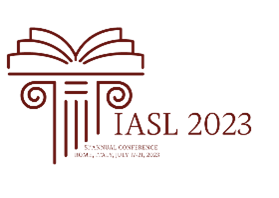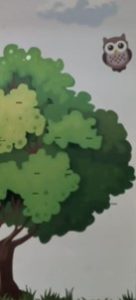A worldwide conference with a flavour of sustainability: the IASL 2023
17 July 2023
 These few lines aim at testifying how each of us, as a library professional, can contribute – even in small bites – to build up a culture of sustainability. Libraries can play a relevant role in term of sustainability: becoming more sustainable through, for instance, saving energy and reducing the usage of paper and toner; developing collections and resources about the Agenda 2030; providing their communities with a range of informational and educational activities to raise awareness on the implementation of the Agenda 2030 in many ways, starting from one’s own behaviour, choices and actions. Librarians’ meetings can be interesting and useful occasions to dive into the Agenda 2030 as a whole or some of its SDGs (Sustainable Development Goals). Meetings, although not focusing on the Agenda itself, should anyway try to pay attention to some of the organizational aspects to make themselves more sustainable.
These few lines aim at testifying how each of us, as a library professional, can contribute – even in small bites – to build up a culture of sustainability. Libraries can play a relevant role in term of sustainability: becoming more sustainable through, for instance, saving energy and reducing the usage of paper and toner; developing collections and resources about the Agenda 2030; providing their communities with a range of informational and educational activities to raise awareness on the implementation of the Agenda 2030 in many ways, starting from one’s own behaviour, choices and actions. Librarians’ meetings can be interesting and useful occasions to dive into the Agenda 2030 as a whole or some of its SDGs (Sustainable Development Goals). Meetings, although not focusing on the Agenda itself, should anyway try to pay attention to some of the organizational aspects to make themselves more sustainable.
The IASL 2023 Annual Conference of the International Association of School Librarianship, incorporating the 26th International Forum on Research on School Librarianship (Rome, 17-21 July, 2023, http://www.iasl2023.com) – “Flourishing School Libraries: Research, Policy and Practice” – is held at and in collaboration with the Generalate of the Brothers of the Christian Schools, together with many institutions and associations, and the support of several sponsors, and includes sustainability both as a content of its programme, and as an aspect of the organization of the conference.
On the content’s side, sustainability and the implementation of the Agenda 2030 in/through school libraries are one of the tracks of the call for papers: the submissions of paper proposals were many and some selected presenters will contribute to the conference. One of the three keynotes, Prof Giuseppe Carrus (Roma Tre University) focuses, from a psychological perspective, on People-environment relations, sustainability and wellbeing. Furthermore, a workshop (two turns) is also organized on strategies to get students engaged in reading through reading circles and collaborative projects including the Agenda 2030. Accessibility, inclusion and access are a further track for several presentations, the keynote speech by Prof Paul Gabriele Weston (Pavia University and Vatican Library School,), and, thanks to the collaboration of IBBY Italia, the 2023 Selection of Outstanding Books for Young People with Disabilities.
 In organizational terms, a decision was made about the bags: the ones in 100% natural cotton fabric, recalling the Agenda 2030, are kindly provided by a sponsor (Pearson). It was decided not to print the conference title and logo on the blank side of the bag, while a customized name tag (that can be reused for one’s own suitcases and luggage) comes along with the bag. Tableware for coffee breaks are in recycled and reusable materials. The conference abstract booklet is published in digital format and freely accessible through a QR-code.
In organizational terms, a decision was made about the bags: the ones in 100% natural cotton fabric, recalling the Agenda 2030, are kindly provided by a sponsor (Pearson). It was decided not to print the conference title and logo on the blank side of the bag, while a customized name tag (that can be reused for one’s own suitcases and luggage) comes along with the bag. Tableware for coffee breaks are in recycled and reusable materials. The conference abstract booklet is published in digital format and freely accessible through a QR-code.
Building inclusive societies (SDG 16) implies also fostering inclusive library communities, and a library meeting can definitely help. During the IASL 2023, those who attend the conference in person can let the “school library tree”, kindly provided by Promal and positioned in the main conference hall, “flourish” by sticking their (paper) flower and leaf, with phrases on reading, learning and school libraries, and a picture of their own school library. Those who cannot make the conference can however be present through their “flowers”, “leaves” and pics sent by email, then printed and stuck on the tree that is on display during the event. Furthermore, as a big hug around the world, an amazing gallery of over 220 posters, designed by K-12/13 students from all over the world, is arranged in the exhibition area on the 2023 theme of the International School Library Month: “The School Library: My Happy Place where Creativity and Imagination flourish”.
IFLA School Libraries Section; Roma Tre University; IASL 2023 Conference Co-Chair, [email protected].